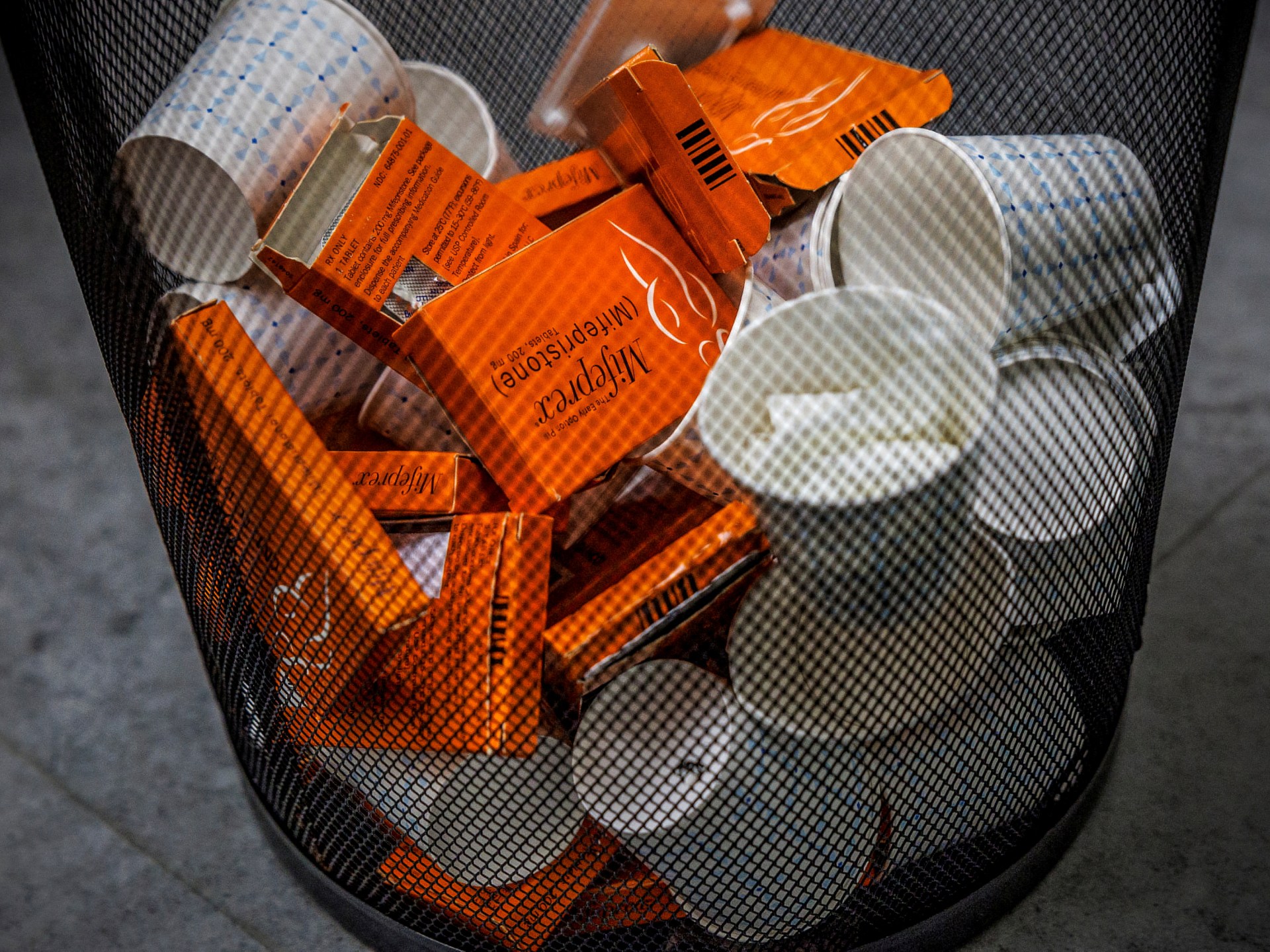We cannot talk to our mothers because of Russian propaganda
It was still Wednesday, February 23, in New York when I received the New York Times news alert on my phone about Russia waging “a full-scale attack from multiple directions” on Ukraine.
Earlier in February, up to 30,000 Russian soldiers were moved to my home country, Belarus, for “military exercises”. The Belarusian service of Radio Free Europe/Radio Liberty shared satellite photos showing the troops’ positions, and wrote about fighter jets, ballistic missile launchers and other war machines, clearly not meant for exercises, crowding Belarusian forests. Russia was using Belarus as a launching pad for its war on our southern neighbour. And as soon as the invasion began, we knew the whole world would see Belarus as an aggressor and accomplice in Russia’s war crimes.
For more than a month now, I have been waking up every morning to news of air raids on Kyiv, to devastating images showing the aftermath of heavy shelling in Kharkiv, Kherson and Chernihiv, to stories of immense human suffering from Mariupol. Every morning, I seek out a new video address from Ukrainian President Volodymyr Zelenskyy to make sure that he is still alive, that Kyiv is still standing.
This war, waged by Russia against sovereign and democratic Ukraine, under immoral, false pretences, is one of the darkest chapters in the recent history of not only Russia but also Belarus. Russia is destroying our present and our future, and it has completely eviscerated our shared past. Although the bombs are not yet raining on Minsk – at least for now – and the Belarusian troops are still on stand-by, Vladimir Putin and Alexander Lukashenko have already brought this bloody war into our homes.
On March 6, the Orthodox Forgiveness Sunday, Lynsey Addario of The New York Times posted on social media photos of a family killed by Russian soldiers as they alongside other civilians tried to flee the heavily shelled Irpin, on the outskirts of Kyiv. The image of the mother and her two sons, blood streaming from the nose of one of the boys – was heartbreaking. It was shocking to see death so devastatingly close and so real.
I sent the photos to my mother via WhatsApp. “Why are you sending me these?” she asked, upset. I told her that she needed to see for herself what was going on in Ukraine.
Like the overwhelming majority of people in Belarus, my mother is shocked by the war next door, and she is scared for her safety. However, her understanding of what is happening in Ukraine is vastly different from mine.
“I know what’s going on in Ukraine,” she retorted. “Use your brain, Russians don’t kill civilians,” said my mother, an ethnic Russian. “Who did it then?” I exclaimed in disbelief. “The Ukrainian fascists, nazis,” she said. She pronounced the word “nazi-ki”, as popularised by talk shows that made my stomach turn. “Armed Ukrainian hooligans took Irpin hostage,” she said. “They shot the residents who wanted to leave!” The story told by my mother sounded surreal, but to her, it was the truth. Because my mother gets her news from Russian TV channels and Facebook.
In my family, we try very hard to avoid being rude, often at the expense of sincerity. That day I lost it though. “Mom, you are a fool,” I said and hung up. While anger and despair were still building up, I texted: “I don’t think we have anything else to talk about.” I burst into tears and went to take a shower. As the anger gave way to shame and guilt, I deleted the text before she could see it, and later called to apologise.
We went on to exchange platitudes and weather reports for a few more days. On March 11, Ukrainian photographer Evgeny Maloletka – who is a familiar name, as we happened to work with the same journalist not long ago – photographed a maternity hospital in Mariupol after it was targeted by Russia. Moscow claimed it had been vacated by patients and doctors, and occupied by the Ukrainian nationalist fighters from the “Azov” regiment.
In one of the photos, a heavily pregnant woman is being carried on a stretcher by a group of men amid smoking ruins. In another, a woman in polka dot pyjamas is walking down the stairs of the destroyed hospital, her face bloodied.
As the photos went viral, the Russian embassy in London tweeted that the photos were fake. It identified one of the pregnant women as beauty blogger Mariana Podgurskaya, and accused her of staging the photo. The post was later deleted from Twitter for policy violation. Mariana Vishegirskaya was indeed a pregnant beauty blogger from Mariupol. She was at the hospital as a patient during the attack. The next day, she gave birth to a baby girl. I followed the information battle on Twitter almost in real time. It was chilling to see how resourceful and persuasive disinformation messaging could get.
I sent the photos to my mother hoping I could explain to her how propaganda worked. She cut me off. “This is not true,” she said confidently. “Stop sending me these pictures, stop harassing me. You live in your reality, and I live in mine.” I couldn’t agree more. Our realities are very different, indeed.
“Why are you still trying to talk to her about it?” Asked my best friend, another Belarusian, who lives in Vermont. We met as teenagers at the Belarusian Humanities Lyceum, now shut down and outlawed. We began going to the protests against Lukashenko’s dictatorial rule when we were barely 15. These days, we call each other often to talk about the war, to cry, and to vent about our mothers, who repeat the same phrases, as if reading from a script: “These are all lies, you don’t understand.”
“All of a sudden, it doesn’t matter that I have a doctorate, and that you are a journalist,” sighs my friend. “Someone has to be wrong in this situation, someone has to be a fool.” And if it is not our mothers, then it has to be us. Indeed, we have been feeling like fools when talking to them.
Another friend from our cohort, who now lives in Canada, is being bullied by her Belarusian cousins, who barrage her with spiteful messages and photo collages of the “Ukrainian fascists” posing in front of swastikas. It seems, in their eyes, our friend is the embodiment of the evil West, and Lukashenko and Putin are liberators.
Our parents are not bad people. They are well-educated professionals who have spent their lives, as far away from politics as possible, building the proverbial “bright future” for their children. They all get their information from TV, and the Belarusian state-owned television is flooded with Russian content and Russian propaganda. With no alternative sources of information, our parents are left ill-informed, and for lack of a better term, brainwashed.
Journalism has been under fire in Belarus since the early years of Lukashenko’s presidency. These days, independent journalism inside the country is as good as nonexistent. According to the Belarusian Association of Journalists, in one year between the presidential election of August 2020 and August 2021, 497 Belarusian journalists were arrested, 68 injured, 119 experienced administrative arrests, 10 outlets were shut down, and more than 100 online resources blocked. Thirty-four journalists remain behind bars today, many serving lengthy sentences for simply doing their jobs. The very few independent media that try to break through the blockade survive by operating from abroad, via Telegram channels and YouTube. Depending on the medium, the audiences need VPNs for access. Our parents do not use VPNs or Telegram.
The 2021 World Press Freedom Index puts Belarus in the 158th slot out of 180. We are slightly better than North Korea (179), but worse than Russia (150).
Russia’s ranking is about to drop hard though. When TV Rain, the independent online television, still operated, I would send my mom links to their special streams about the war. On March 1, TV Rain and Echo Moskvy were shut down, Meduza and other online media were partially blocked for reporting about Ukraine. Russian offices of the international media were cleansed too. Deutsche Welle and BBC websites were shut down, and so were Facebook and Instagram.
Since March 3, calling the “special operation” in Ukraine a “war” has become a criminal offence in Russia, punishable with up to 15 years in prison. On March 4, Novaya Gazeta’s newsroom folded. About 150 journalists left the country, among them reporters from the BBC and Radio Liberty. On the western side of the resurrected Iron Curtain, online platforms rushed to cancel Russian state-sponsored media accounts, limiting their reach.
To the Western world, the unbelievable narrative of the Russian propaganda about the war seems absurd. However, propaganda and disinformation have long been used by the Russian authorities to fight their enemies and to shape public opinion. And Putin’s Echo Chamber seems to be working. According to recent polls, nearly 60 percent of Russian citizens support the war. This number is considerably smaller in Belarus, where only 3 percent of people support the country’s involvement in the conflict. But this does not mean they are aware of what is really happening to their southern neighbours.
With no access to free, objective information, Russia and Belarus have turned into Orwellian states where history is rewritten, and news is fiction. This information blockade is old news for us. That is how we lived in the USSR, trying to make sense of the outside world by piecing together bits of information overheard in someone’s kitchen, over short radio waves. The USSR lasted 70 years. The full-scale invasion of Ukraine by Russia began just over a month ago, and it does not seem to be slowing down.
To my fellow journalists, both inside and outside Russia and Belarus, I would like to say: “Let’s not give up on trying to break their silence about this war, no matter how defeating our attempts may feel.” To editors, I’d say: “Hire us, Ukrainian, Belarusian and Russian journalists who have been reporting on our region for much longer than many foreign journalists who are currently on the ground.” Yes, we are good fixers and translators, but we deserve to tell our own stories, and we can do it well. Let’s be creative and resourceful in our ways and means. We owe it to the courageous people of Ukraine, and to Belarusians and Russians who have never wanted this war, especially to those who refuse to know about it. I personally, owe it to my mother.
The views expressed in this article are the author’s own and do not necessarily reflect Al Jazeera’s editorial stance.




